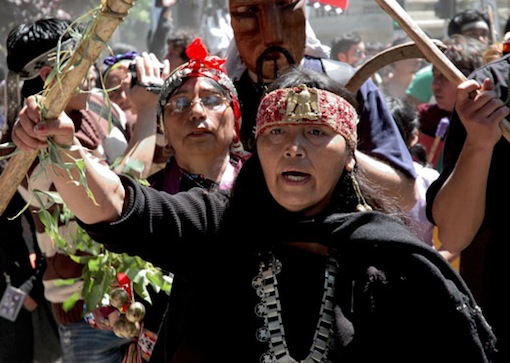A documentary about the history of the fight of the rural workers in Brazil. Go here for the list of videos
Brazil’s Landless Workers Movement, Movimento dos Trabalhadores Rurais Sem Terra (MST) in Portuguese, is
a mass social movement, formed by rural workers and by all those who
want to fight for land reform and against injustice and social
inequality in rural areas.
The MST was born through a process of occupying latifundios (large
landed estates) and become a national movement in 1984. Over more than
two decades , the movement has led more than 2,500 land occupations,
with about 370,000 families - families that today settled on 7.5 million
hectares of land that they won as a result of the occupations. Through
their organizing, these families continue to push for schools, credit
for agricultural production and cooperatives, and access to health care.
Currently, there are approximately 900 encampment holding 150,000
landless families in Brazil. Those camped, as well as those already
settled, remain mobilized, ready to exercise their full citizenship, by
fighting for the realization of their political, social economic,
environmental and cultural rights.

